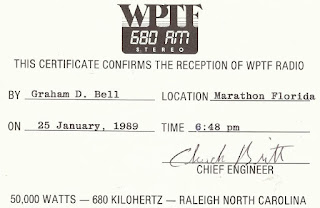
This week gave me the chance to see lovely shots of Table Mountain on TV here in London. Newlands, the beautiful cricket ground in Cape Town, was the scene of the first test between SA and Australia. I've been there so many times. The game was an amazing statistical anomaly. On what seemed to be a difficult, damp pitch on the first day, Michael Clarke, the Ozzie captain, made an imperious 151 but all the other batsmen struggled. On the second day, the Proteas capitulated making less than 100 and leaving themselves, seemingly, well out of the game. The SA seamers then ripped Oz to pieces, reducing them to 21/9 before they eked out 47. This was, I think, the lowest score by Australia since World War 2. Clarke, known as Pup, managed just 2 in his second knock. The Proteas then knocked off the 236 needed to win with 8 wickets to spare, making it look so easy. It was a story book ending for Protea's captain, Graeme Smith. Hashim Amla made his century, getting there with 4 successive fours and then went out. That gave Smith just enough time to make his 100 and hit the winning runs. The QSL is from Pup's home state, New South Wales. The station is 2AY, Albury, heard in Morgan Bay, South Africa in 1992. This is only 2kW, one of my best AM catches.

 Holidays - yay! A very complicated year draws to a close and we are all taking time off. The markets delivered a fine Santa rally in the closing days before Christmas as everyone just got fed up with the nagging issues of the Eurozone. In the US the economy continued to self-medicate with a long series of above-consensus data coming out over the past few months. Labour data in particular, key to any sustainable recovery, has surprised on the upside and there is a good chance of another 200 plus private payrolls release some time in the next month or two. But we must stay vigilant for disaster-myopia - the natural human desire to relegate thoughts about a major market dislocation to the nether regions of the brain. Europe remains on course for disaster. Back in SA the touring Sri Lankan cricket team is in the process of extracting revenge for the crushing defeat in the first test by building up an unassailable lead in the second test in Durban. It looks like they'll win this one, meaning that the decider in Cape Town in the New Year could be a nail-biter. New Year's test match in Cape Town - ahh such great memories over the years! The pic is from a QSL from the Ceylon Broadcasting Corporation, heard in Cape Town in 1971 on shortwave 19mb.
Holidays - yay! A very complicated year draws to a close and we are all taking time off. The markets delivered a fine Santa rally in the closing days before Christmas as everyone just got fed up with the nagging issues of the Eurozone. In the US the economy continued to self-medicate with a long series of above-consensus data coming out over the past few months. Labour data in particular, key to any sustainable recovery, has surprised on the upside and there is a good chance of another 200 plus private payrolls release some time in the next month or two. But we must stay vigilant for disaster-myopia - the natural human desire to relegate thoughts about a major market dislocation to the nether regions of the brain. Europe remains on course for disaster. Back in SA the touring Sri Lankan cricket team is in the process of extracting revenge for the crushing defeat in the first test by building up an unassailable lead in the second test in Durban. It looks like they'll win this one, meaning that the decider in Cape Town in the New Year could be a nail-biter. New Year's test match in Cape Town - ahh such great memories over the years! The pic is from a QSL from the Ceylon Broadcasting Corporation, heard in Cape Town in 1971 on shortwave 19mb.














































